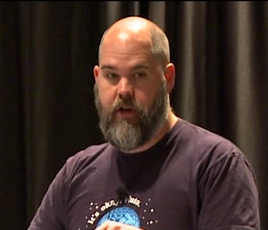CppCon 2014 0xBADC0DE--Jens Weller
 While we wait for CppCon 2015 in September, we’re featuring videos of some of the 100+ talks from CppCon 2014. Here is today’s feature:
While we wait for CppCon 2015 in September, we’re featuring videos of some of the 100+ talks from CppCon 2014. Here is today’s feature:
0xBADC0DE
by Jens Weller
Summary of the talk:
My motivation for this talk is my own expierence as a freelancer and trainer. I have seen a lot of good and bad code in different places. As a freelancer I often had to deal with different, unknown and often large codebases. This talk tries not only to show examples of bad code, but also to analyze why it exists in the first place, and how to deal with it or fix it. I'll visit anti-patterns, but this talk is not about anti-patterns, as that would only spotlight one of the many problems.

 Come see a nice product review:
Come see a nice product review:
 While we wait for CppCon 2015 in September, we’re featuring videos of some of the 100+ talks from CppCon 2014. Here is today’s feature:
While we wait for CppCon 2015 in September, we’re featuring videos of some of the 100+ talks from CppCon 2014. Here is today’s feature: While we wait for CppCon 2015 in September, we’re featuring videos of some of the 100+ talks from CppCon 2014. Here is today’s feature:
While we wait for CppCon 2015 in September, we’re featuring videos of some of the 100+ talks from CppCon 2014. Here is today’s feature: